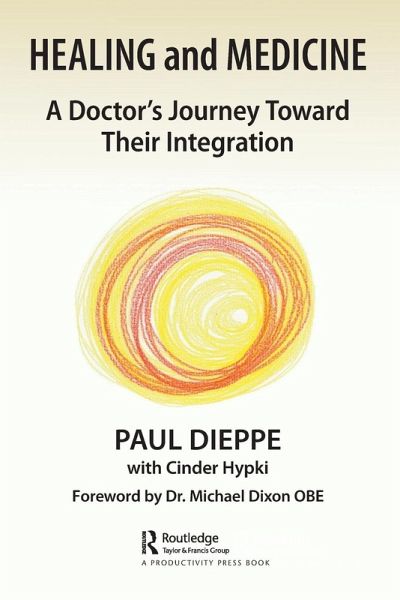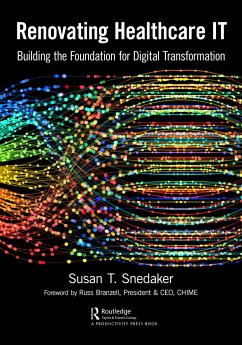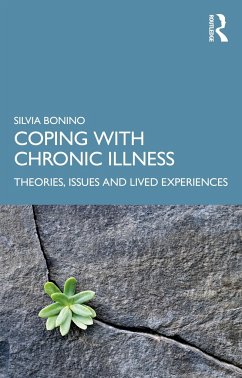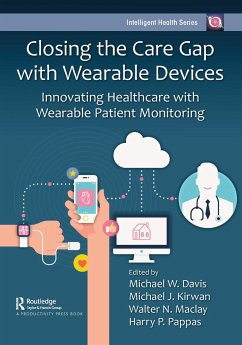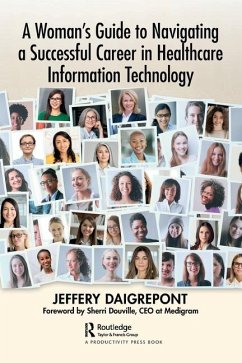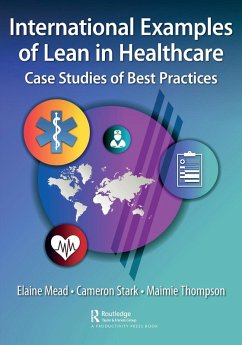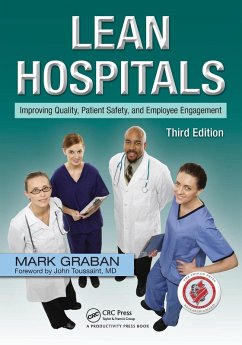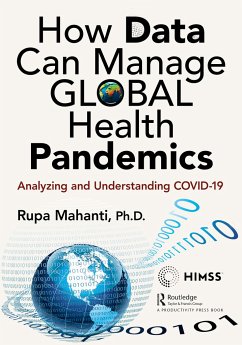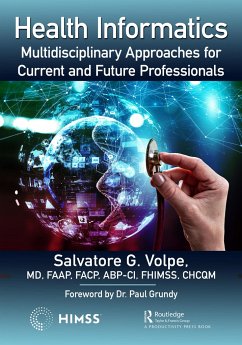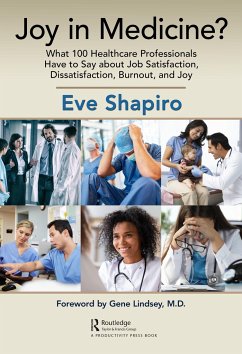"How should healing, that mysterious process we all know, be studied? Dr Dieppe is one of those rare researchers who seeks out and listens carefully to people whose accounts of healing are typically dismissed. He examines closely experiences of his own that most choose to ignore. Building on this attentiveness, he gives us the story of his journey from a biomedical approach to healing to one that takes the powers of the body to be at the heart of healing's mystery. Dieppe's style is that of a gifted raconteur. His story of discovery becomes ours in the course of his telling. His vision of the body as fundamentally spiritual offers a picture of healing as the activity of living with love into our connections with all that is."
David Schenck. Co-author of "Healers: Extraordinary Clinicians at Work" and "What Patients Teach: Everyday Ethics of Healthcare," and the author of "Into the
Field of Suffering: Finding the Other Side of Burnout.""In medicine we learn to discount what doesn't fit our biomedical version of reality. Lately though, it seems ever clearer that Biomedicine is but a small part of the long art. Our profession should be thankful then, that this distinguished clinician and researcher has stayed faithful to his own experience and been so rigorously curious about inexplicable recovery and reconciliation."
David Peters. Professor Emeritus, University of Westminster, Editor in Chief, Journal of Holistic Healthcare & Integrative Medicine"Healing often draws meaning from suffering. It encompasses trustworthy relationships that include kindness, a sense of being known, and unconditional love. The author of this book shares his deep knowledge of the healing process. From hard won personal experience and research that involves deep listening to others' journeys, he recounts authentic experience that can serve as lenses, or sometimes even as mirrors, for us to understand and grow in our own healing journeys. Whether we are experiencing our roles as healers or as people in need of healing, this book offers us practical wisdom for the individual, collective, and systemic changes needed to foster healing."
Kurt C. Stange. Professor of Family Medicine & Community Health, Population & Quantitative Health Sciences, Oncology and Sociology, and Director, Centre for Community Health Integration. Case Western Reserve University, Cleveland Ohio. Founding editor of the Annals of Family Medicine"Since Victorian times western medicine has endorsed a model which has prioritised curing over healing. It has had spectacular scientific and technical success but in recent decades it's shortcomings have become increasingly clear. A number of pioneers have already pointed to the direction which is required, an integration of arts and sciences as well as the spiritual and material. In his varied and illustrious medical career Paul Dieppe exemplifies just what is needed if this new model is to take hold. His book should be required reading for all healthcare professionals and complementary therapists and will also appeal to a wider audience who want to see medicine fulfil its potential for healing."
David Greaves, formerly senior lecturer in Medical Humanities at Swansea University and author of 'The Healing Tradition' (Routledge, 2004)."Medicine and healing have been the twin themes of my career for 60 years; my journey as well as Paul Dieppe's. I am profoundly glad that our paths converged, and profoundly grateful for the vision he brings to the shared vocation of all who tread the same path. The courage and honesty with which he combines personal experience and insight with diligent enquiry and academic authority, are moving and powerful; and richly evoke the healing that medicine needs."
Jeremy Swayne. Doctor and Priest; one time General Practitioner, Dean of the Faculty of Homeopathy UK, and Chair of the Bath and Wells Diocesan Healing Advisory Group; author of Remodelling Medicine (Saltire Books, 2012)."
Healing and Medicine: A Physician's Journey adds a unique voice to the 21st century entreaty that health must be viewed as more than the absence of disease. The remarkable message of this book is that a more complete level of health is achievable not solely through improved techniques, technology and pharmaceuticals, but through a deeper understanding of the many facets of healing, itself.
Dr. Dieppe shares with readers how his several life-threatening personal challenges as much as his keen observations of physician-patient clinical encounters set him on the journey to explore the nature of healing. We travel with him to interview those who heal and those who have been healed, to visit hospitals, community health fairs and Lourdes, and to explore healing through clinical trials and public art. What emerges are insights and hypotheses that will pique the interest of all who rely on, all who practice and all who are committed to improving contemporary healthcare."
Richard Hammerschlag. Co-Director of Research and Innovation, Consciousness and Healing Initiative, La Jolla, California. Emeritus Research Director, Oregon College of Oriental Medicine, Portland, Oregon
"Professor Dieppe brings a lifetime of outstanding clinical and research experience as an internationally acclaimed academic physician, combined with his personal insights and experiences of healing, to this book. It is the most rigorously researched and insightful book on human healing to date.
This book should be read by everyone involved in the delivery of healthcare, whether as doctors, nurses, allied healthcare professionals, or therapists. It is a powerful rallying call to move beyond the blinkered confines of reductionism to elevate medicine to a new plane - as a healing art and science. And it serves as an illuminating guide for anyone interested in self-care - and that should be all of us - to embark on a healing journey whatever their stage of life."
Stewart Mercer. Professor of Primary care and Multimorbidity, Usher Institute, University of Edinburgh. Co-Author of 'Embracing Empathy in Healthcare' (Radcliffe 2014)
"As we navigate through challenging times, this book offers a refreshing perspective on the role of healing in medicine. This book is a must-read for professional health care trainees and anyone seeking a deeper understanding of healing and its role in our lives."
Professor Ian Fussell, Associate Pro Vice Chancellor for Education, Faculty of Health and Life Sciences, University of Exeter
"Paul Dieppe is an internationally renowned rheumatologist with an esteemed career in academia and evidence-based medicine. In this book he has courageously and creatively charted different waters, mostly unexplored and sadly neglected by the medical profession. His professional and personal journey plumbs the depths of healing, and what that actually means to each of us as people. This resonates deeply with physicians like me, and will with those grappling with illness or trauma. We increasingly have to question the limitations of our scientific biomedical approach, with its focus on curing alone. This book brings messages of hope that are, themselves, healing."
Brian M. Berman. Professor Emeritus Family and Community Medicine, University of Maryland School of Medicine; Founder and President, Nova Institute for Health; Founder and Director, Cochrane Complementary Medicine Field; Bravewell Leadership Award in Integrative Medicine
